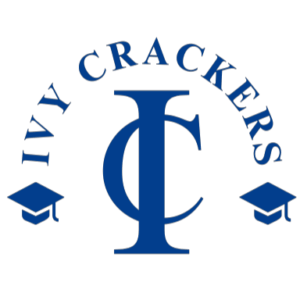ISB Essay Tips: Crafting Stories That Impress
Essay 1: Contemplate situations that have shaped your personal journey. Present what these situations have taught you about your strengths and weaknesses, and how they have shaped your personal and professional journey (400 words).
The Indian School of Business (ISB) asks MBA applicants to reflect on significant experiences that have shaped their personal journey and discuss the insights gained regarding their strengths and weaknesses. This essay prompt offers a unique opportunity to demonstrate your self-awareness, resilience, and growth. In this blog post, we will provide you with strategies to write an impactful essay that effectively addresses this prompt.
Understanding the Prompt
Let’s dissect the essay prompt: “Contemplate situations that have shaped your personal journey. Present what these situations have taught you about your strengths and weaknesses, and how they have shaped your personal and professional journey.”
- Situations that Shaped Your Personal Journey: These can be pivotal moments, challenges, or significant experiences in your life.
- Strengths and Weaknesses: Reflect on what these situations revealed about your core competencies and areas for improvement.
- Impact on Personal and Professional Journey: Discuss how these insights have influenced your growth and career path.
1) Choosing the Right Situations
Start by reflecting on major events in your life that have significantly influenced you. These might include:
- Personal Challenges: Overcoming adversity, personal loss, or significant life changes. These learning experiences arise from hobbies, volunteer work, travel, or any activities outside formal education and work. These might involve mastering a new skill, volunteering for a community project, or traveling to diverse cultures. These experiences contribute to your intellectual growth by broadening your perspectives, enhancing your emotional intelligence, and fostering a deeper understanding of the world around you.
- Professional Experiences: Career milestones, leadership roles, or major projects. These learning experiences are often found in the workplace, where you encounter real-world problems and navigate complex situations. These might include leading a major project, overcoming a significant challenge, or implementing a new strategy. Such experiences teach you practical skills, foster resilience, and encourage a growth mindset. They also help you understand the importance of continuous learning and adaptability in a dynamic work environment.
- Academic Experiences: These involve rigorous coursework, research projects, or any educational pursuits that challenged your intellect and expanded your knowledge. Examples might include conducting a complex research project, engaging in a stimulating debate, or participating in a transformative study abroad program. Such experiences push you to think critically, analyze data, and develop innovative solutions, thereby significantly impacting your intellectual journey. These will be extremely helpful if you have less than 4 years of work experience or if you’re looking for a career transition.
2) Identify Strengths and Weaknesses
For each situation, reflect on what it taught you about yourself and how it shaped your personality (both professionally and personally). Consider:
- Strengths: Your strengths might include qualities like leadership, creativity, resilience, and emotional intelligence. For example, managing a demanding project under tight deadlines while maintaining high-quality standards demonstrates resilience. Similarly, situations where you led a team through a challenging period, initiated a new project, or facilitated collaboration among diverse group members, driving the team to success demonstrate your leadership skills.
- Weaknesses: What areas did you identify for improvement? Examples include communication, delegation, or technical skills. AVOID using time management as an example. For instance, if public speaking was a weakness, discuss how you took steps to improve through practice and feedback.
By thoughtfully considering your strengths and weaknesses, you can present a well-rounded and authentic portrayal of yourself in your essay. This reflection not only highlights your self-awareness but also demonstrates your commitment to continuous improvement and personal growth, essential qualities for any successful MBA candidate.
3) Connect to Your Personal and Professional Journey
Link these insights to your broader personal and professional development. Discuss:
- Personal Growth: How these experiences shaped your values, mindset, and life goals. For example, volunteering in underserved communities might have instilled a deep sense of empathy and a commitment to social justice. Similarly, mentoring underprivileged students might inspire you to aim for a career that combines business with social impact.
- Professional Development: How they influenced your career choices, leadership style, and professional aspirations. For example, a challenging internship in a startup might reveal your passion for entrepreneurship, steering you toward roles that involve innovation and business creation. Similarly, excelling in a strategic role might inspire you to aim for senior management positions where you can influence organizational direction.
4) Structure Your Essay
Your essay should be a cohesive and engaging story that ties together your experiences, reflections, and growth. Here’s a structure to guide you:
- Introduction: Begin with a hook that captures the reader’s interest. Introduce the main theme of your essay.
- Body: Describe the situations you’ve chosen, analyze your strengths and weaknesses, and discuss how these experiences have shaped you. Use specific examples and vivid details.
- Conclusion: Summarize the key insights from your reflections. Connect your personal journey to your future goals and explain why you are well-suited for an MBA program.
Essay 2: What intellectual experiences have influenced your approach to learning and have led you to pursue an MBA? Please describe using anecdotes from your own experiences. (400 words).
This Indian School of Business (ISB) MBA application essay prompt requires introspection and storytelling to highlight personal growth and intellectual curiosity. One such prompt asks applicants to describe intellectual experiences that have influenced their approach to learning and led them to pursue an MBA. Crafting a compelling response to this essay involves weaving together anecdotes that showcase your journey and the development of your aspirations.
Understanding the Prompt
First, let’s break down the essay prompt: “What intellectual experiences have influenced your approach to learning and have led you to pursue an MBA? Please describe using anecdotes from your own experiences.”
- Intellectual Experiences: These can be academic, professional, or personal learning experiences that significantly impacted your thinking. For example, a capstone project in your undergraduate program that required extensive research and critical analysis might have deepened your understanding of a specific field and sharpened your intellectual skills. Similarly, leading a cross-functional team to implement a new technology solution in your company might have taught you about project management, teamwork, and innovation. Also, this could include self-study of new languages, participation in community service, or even travel experiences that exposed you to diverse cultures and ideas.
- Approach to Learning: How these experiences have shaped your methods and attitudes toward acquiring knowledge. For example, actively participating in workshops and seminars to stay updated on industry trends. Similarly, valuing the exchange of ideas and knowledge with others through group projects, study groups, and professional networks are essential for learning.
- Pursuit of an MBA: The connection between your past experiences and your decision to pursue an MBA at ISB. For instance, your professional experience in managing a diverse team might have revealed the need for advanced management skills and strategic thinking, prompting you to seek an MBA. Explain how an MBA will help you acquire the skills necessary to achieve your career goals. For example, ISB’s focus on leadership and innovation might align with your aspiration to lead a multinational team. Similarly, highlight the importance of building a strong professional network and how ISB’s diverse cohort and global connections will benefit you.
1) Brainstorm and Select Key Experiences
Choose experiences that are significant and have had a profound impact on your approach to learning and professional goals. These could be academic projects, professional experiences, personal interests, or any other activities that sparked your intellectual growth.
- Academic Projects: Describe a significant academic project or research that challenged you intellectually. Highlight how this experience developed your critical thinking, problem-solving skills, and passion for continuous learning. You can use this if you have less than 4 years of work experience and you’re facing a hard time in coming up with work related situations.
- Professional Challenges: Discuss a professional experience where you encountered complex challenges that required innovative thinking and learning new skills. Explain how this experience shaped your approach to tackling problems and seeking knowledge.
- Personal Interests: Share how a personal interest or hobby has influenced your intellectual development. Whether it’s reading, traveling, or participating in a specific community, these experiences can provide unique insights into your approach to learning. You can use this if your personal interests/hobbies are far more important than your full-time work experience or it is actually part of your work experience. For example, if you have played a sport at a national level or played an instrument at a major/historic event.
2) Crafting Your Anecdotes
It’s essential to effectively communicate how your experiences have contributed to your personal and professional growth, their relevance to the skills required for an MBA, and to let your unique personality shine through. Here’s a deeper look at each of these aspects to help you create a compelling and insightful essay.
- Showcase Growth: To showcase growth, you need to illustrate how a particular experience pushed you out of your comfort zone and led to significant personal or professional development. For example, leading a high-stakes project with tight deadlines and limited resources. Explain how you navigated these challenges. What strategies did you use? Did you seek mentorship, learn new skills, or adopt a different approach? Along with this, demonstrate how this experience transformed your capabilities, outlook, or behavior.
- Demonstrate Relevance: Link your experiences to the skills and mindset that are critical for success in an MBA program and beyond. Highlight skills such as leadership, analytical thinking, problem-solving, and teamwork that are essential for an MBA. Then, explain how the experience helped you develop these skills. For example, solving a complex business problem might have honed your analytical abilities and strategic thinking. Finally, connect these skills to what you aim to achieve through an MBA. How will the MBA program help you build on these skills and apply them to your career goals?
- Reflect Your Personality: Let your unique voice, passion, and perspective be evident throughout your essay. Share your genuine interests, motivations, and values. What drives you? What are you passionate about? Share specific moments that highlight your personality traits and enthusiasm. You must convey your excitement about learning and growth. Let your passion for the field and the MBA program shine through your writing.
3) Connecting to the MBA
It’s crucial to highlight the skills you’ve developed, how these have shaped your career goals, and why ISB/MBA is the perfect fit for achieving these goals. Here’s a detailed exploration of each of these elements:
- Developed Key Skills: Leadership, analytical thinking, teamwork. For example, describe situations where you took charge, such as leading a project, managing a team, or organizing an event. Highlight the challenges you faced and how you overcame them. Similarly, share instances where you applied analytical skills to analyze market trends, optimizing business processes, or solving technical challenges. Also, you can provide examples of how you contributed to a team’s success, resolved conflicts, or facilitated communication.
- Shaped Your Career Goals: Reflect on key experiences that have directed your career path. These could be specific projects, roles, or challenges that sparked your interest in a particular field or industry. You should also articulate how these experiences have shaped your long-term career aspirations. What impact do you want to make in your industry? How do you envision your career progressing?
- Reflect Your Personality: Explain how ISB’s curriculum, faculty, and resources align with your career goals. Highlight specific courses, programs, or opportunities at ISB that will help you achieve your aspirations. Along with this, you can also discuss how ISB’s community and values resonate with your own. Why do you see yourself thriving in ISB’s environment? Mention any interactions with ISB alumni or experiences that have reinforced your desire to join ISB.
4) Structure Your Essay
A well-structured essay enhances readability and impact. Here’s a suggested structure:
Introduction:
- Start with a compelling anecdote that illustrates a key experience where you developed essential skills.
- Briefly introduce how these skills have shaped your career goals and why ISB is the right fit for you.
Body:
- Developed Key Skills: Provide detailed examples of experiences that helped you develop leadership, analytical thinking, and teamwork skills. Highlight the impact of these skills on your professional development.
- Shaped Your Career Goals: Discuss specific experiences that have influenced your career trajectory and long-term aspirations. Show a clear connection between your past experiences and your future goals.
- Aligned with ISB’s Values: Explain why ISB is the perfect place for you to achieve your career goals. Highlight specific aspects of ISB’s program, culture, and values that resonate with you.
Conclusion:
- Summarize the key points of your essay.
- Reinforce how your developed skills, shaped career goals, and alignment with ISB’s values make you an ideal candidate for the MBA program.
By thoughtfully elaborating on your developed skills, how they have shaped your career goals, and why ISB is the right fit for you, you can create a compelling and persuasive ISB MBA essay that effectively communicates your readiness and potential for success in the program.

Essay 3 (Optional): Given your experience and aspirations, how do you plan to use the PGP at ISB to fulfil your professional goals? (Optional – 250 words).
Applying for the Post Graduate Program (PGP) at the Indian School of Business (ISB) requires a thoughtful approach, especially when it comes to the essay that asks how you plan to use the PGP to fulfill your professional goals. This essay is your chance to demonstrate clarity about your career path and to articulate how ISB’s offerings align with your aspirations. Here are some strategies to help you craft a compelling response.
Understanding the Prompt
The essay prompt is: “Given your experience and aspirations, how do you plan to use the PGP at ISB to fulfill your professional goals?” To address this prompt effectively, you need to:
- Highlight Your Experience: Provide an overview of your current job position, key responsibilities, and any relevant industry or sector. Then, briefly describe your career path, highlighting significant roles and transitions. Emphasize how you have progressed and taken on increased responsibilities over time. You should focus on contributions that had a significant impact on your organization. This might involve leading a successful product launch, implementing a new system or process, or securing a major client.
- Define Your Aspirations: Clearly state what role you aim to secure immediately after completing your MBA. Be specific about the industry, function, and type of organization. You should explain the skills and experiences you need to achieve this role. Connect these to the gaps in your current skill set or experience. Then, describe your long-term career vision. What position do you aim to hold 5-10 years down the line? How do you see yourself making a broader impact in your industry or community? You must highlight the kind of legacy you want to leave and the contributions you aim to make to your field or society.
- Research ISB’s PGP: Discuss specific aspects of ISB’s curriculum that align with your career goals. Mention courses, specializations, or learning opportunities that will help you develop the necessary skills. You should highlight the benefits of learning from ISB’s distinguished faculty and collaborating with a diverse cohort of peers. Explain how these interactions will enhance your learning experience and professional network. Along with this, you can mention any ISB clubs, initiatives, or experiential learning opportunities that you plan to engage with and how they align with your goals.
- Create a Detailed Plan: How will the curriculum and faculty help you gain the necessary skills? Which projects, internships, or programs will provide hands-on experience? How will ISB’s network support your career growth?
Structure Your Essay
Introduction:
- Snapshot of Your Career: Provide a concise overview of your professional journey. Mention your current role, the industry you work in, and your career progression.
- Career Aspirations: Briefly state your career goals, both immediate and future. This sets the stage for the rest of your essay by giving the admissions committee a clear understanding of your professional ambitions.
Body:
- Detailed Overview: Describe the significant roles you have held and highlight leadership roles and specific duties.
- Achievements and Impact: Highlight your major achievements with quantifiable results, demonstrating the impact you’ve made in your roles. For Example: “I led the launch of a new software product that generated $5 million in revenue within its first year. Additionally, my efforts in optimizing product development processes reduced time-to-market by 25%.”
- Skills and Competencies: Mention the skills and competencies you have acquired through your professional experiences. Provide examples of how you have demonstrated these skills.
- Career Goals: Clearly outline what role you aim to secure immediately after completing your MBA. Specify the industry, function, and type of organization (go as detailed as possible). For Example: “Upon completing my MBA, I aim to get into Product Management in a top-tier technology firm, focusing on driving product innovation and market strategy.” Describe your long-term career vision, including the position you aspire to hold and the broader impact you aim to make in your industry or community. For Example: “My long-term goal is to lead a product vertical, where I can drive a company’s product vision and strategy, fostering innovation and creating products that make a significant impact on the market and society.”
- Plan at ISB: Discuss specific aspects of ISB’s curriculum that align with your career goals. Mention courses, specializations, or learning opportunities that will help you develop the necessary skills. You can also highlight the benefits of learning from ISB’s distinguished faculty and collaborating with a diverse cohort of peers. Explain how these interactions will enhance your learning experience and professional network. You must also mention any ISB clubs, initiatives, or experiential learning opportunities that you plan to engage with and how they align with your goals.
Conclusion:
Briefly recap your professional background, key experiences, and achievements that have prepared you for an MBA. Reiterate your career goals and how ISB’s PGP will help you achieve them.
By elaborating on your professional background, career aspirations, and how ISB’s PGP will help you achieve your goals, you can create a compelling and well-structured essay that effectively communicates your readiness and potential for success in the program.
How can IvyCrackers help you?
When it comes to making informed decisions about an MBA/MS/STEM program, there is often no substitute for firsthand knowledge and advice from those who have been through similar experiences. That’s why we, at IvyCrackers, firmly believe that one of the best ways to gain valuable insights about a particular MBA/MS/STEM program or university is to interact with current students and alumni of that very university
Connecting with them can give you a more comprehensive understanding of what it is be part of that university, both in terms of coursework and extracurricular activities, as well as the kind of career options that may be available after graduation. Our “Mentor Session” initiative is designed to help facilitate these connections by pairing you with members of our community who can share their personal experiences and perspectives with you.

Our team of mentors, at IvyCrackers, has been passionately dedicated to helping countless candidates achieve their academic and professional goals. We have worked tirelessly to provide comprehensive services that are tailored to your specific needs, including refining your application essays, conducting mock interviews, perfecting your resumes, and strengthening your profiles. Our commitment to excellence is reflected in the success stories we have helped create, with our clients consistently achieving remarkable feats in their chosen fields.
We believe that everyone has the potential to excel, and we are here to help you unlock that potential. So why not head over to our ‘Mentors’ section now and discover how we can help you fulfill your dreams today?
Visit our Youtube Channel, Linkedin or Instagram Page for regular updates!


